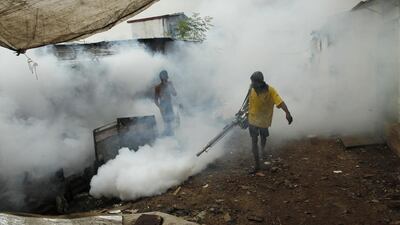The real achievement of Sri Lanka being declared free of malaria by the World Health Organisation this week will be what happens in the years that follow: millions of people will be spared from becoming infected and possibly dying from an eradicable disease. Sri Lanka is already reaping the benefits, going from more than 250,000 cases of malaria each year in the late 1990s down to having no new cases locally since October 2012.
But could this have been achieved more than 50 years ago? In 1963, Sri Lanka had just 17 reported cases of malaria, reflecting a concerted effort against the disease launched in 1911, when more than 1.5 million people contracted it. After 1963, the incidence of malaria steadily increased and over nearly 40 years, the progress that had been made was reversed.
Some researchers put the blame on the decision to stop using DDT, a powerful insecticide that was first synthesised in 1939 and became a key part of the anti-malarial campaign in Sri Lanka and many other countries. DDT fell from favour in the 1970s after it was blamed for devastating local bird populations by weakening the calcification of their eggs. By the 1980s, most countries had banned or phased out the use of the insecticide.
A joint study by Uniformed Services University of the Health Sciences, Harvard University, London School of Hygiene & Tropical Medicine and Malaria Foundation International released in 2000 argued that when used in small quantities for mosquito eradication, DDT is useful because it is affordable for developing countries’ budgets but remains below the threshold for significant harm to bird life.
Other researchers dispute this, and say mosquitos were already becoming resistant to DDT when it was discontinued and the real cause of malaria’s resurgence was the government’s decision to divert anti-malarial funds, thinking too early it had been eradicated. Regardless of which side is right, the lesson here is that eradicating malaria in Sri Lanka and elsewhere requires ongoing dedication and vigilance, or else all the gains made will be lost once more.

